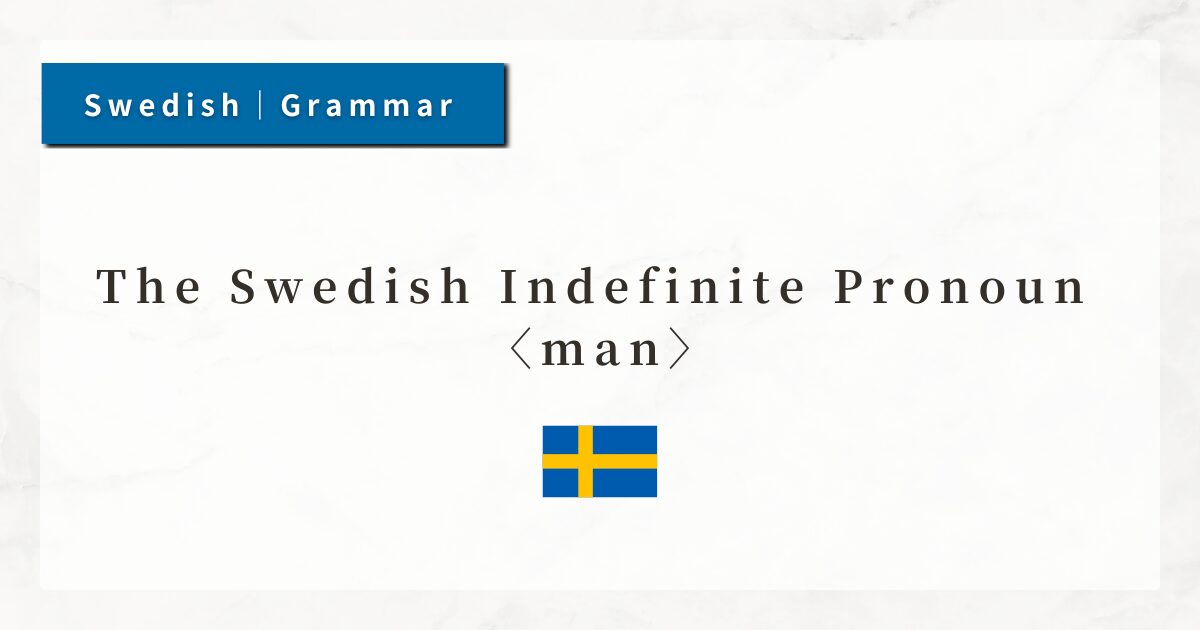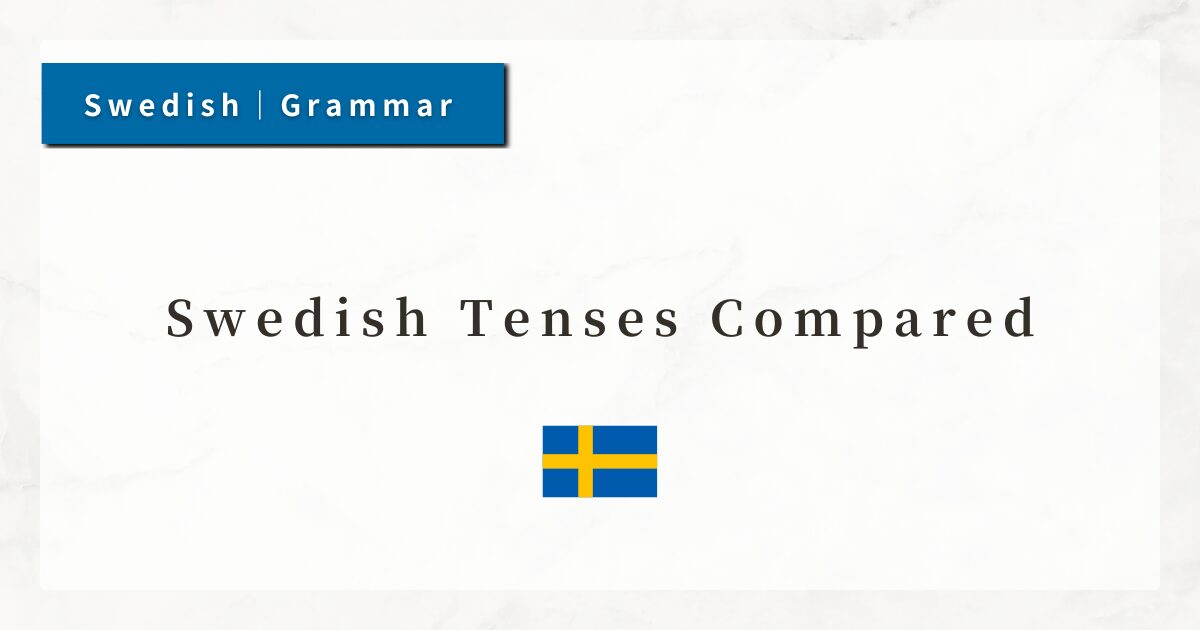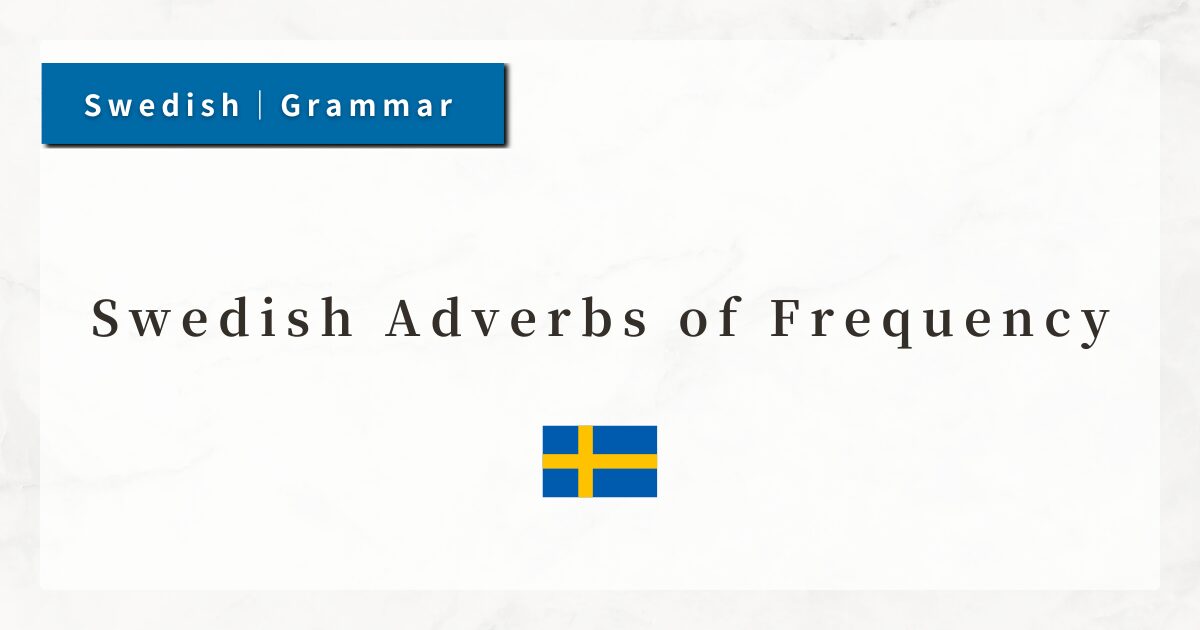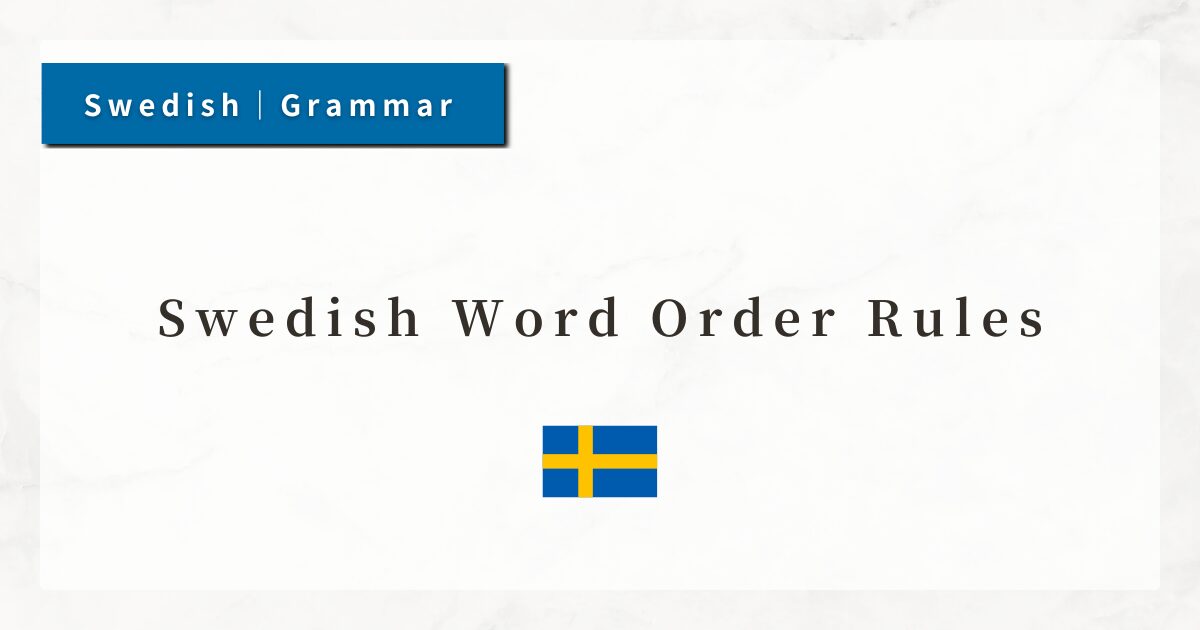#41 The Swedish Indefinite Pronoun man|Meaning and Usage Guide

Swedish has a special indefinite pronoun, man.
It does not refer to any specific person, but is used in a general sense, similar to “one” in English, or sometimes “you” in everyday usage.
In this lesson, I will explain the meaning, usage, and grammatical features of man.
1. The Meaning and Nuance of man
The indefinite pronoun man does not point to any specific individual, but rather expresses a general subject or common practice.
It is equivalent to English one, or in some contexts you.
- Man måste äta för att leva.
(One must eat to live. / People have to eat in order to live.) - I Sverige äter man mycket sill.
(In Sweden, people eat a lot of herring.)
In this way, man allows the subject to remain vague and avoids making the listener think of a particular person.
2. man is Always Third Person Singular
Even though man refers to “people in general” or “indefinite subjects,” it is always treated grammatically as third person singular.
Thus, verbs are always conjugated in the third person singular.
- Man är glad när solen skiner.
(People are happy when the sun is shining.)
3. Case Forms of man
When man is used as the subject, it remains man. But in the object or possessive forms, it changes.
| Role | Form | Example | Translation |
|---|---|---|---|
| Subject (nominative) | man | Man vet aldrig vad som händer. | One never knows what will happen. |
| Object (accusative) | en | Det känner man igen. | People recognize that. |
| Possessive (genitive) | ens | Det är viktigt att ta hand om ens hälsa. | It is important to take care of one’s health. |
Note: ens is somewhat formal/written. In everyday usage, possessive forms of the reflexive pronoun (sin / sitt / sina) are more common.
For example, “one’s health” is more naturally expressed as sin hälsa.
4. Situations Where man is Used
man appears in many contexts, especially when describing general customs, giving advice, or when the subject is indefinite.
4-1. Describing Customs or Culture
Used when explaining general practices in a country or region:
- I Japan tar man av sig skorna innan man går in i huset.
(In Japan, people take off their shoes before entering the house.)
4-2. General Opinions or Advice
Often used for general statements or recommendations:
- Man bör dricka tillräckligt med vatten varje dag.
(One should drink enough water every day.)
4-3. Indefinite Subject (Impersonal/Passive-like meaning)
When the speaker wants to avoid specifying who, or when the subject is unknown:
- Man säger att vädret blir bättre imorgon.
(It is said that the weather will improve tomorrow.)
While sentences with man are grammatically active, they can carry a meaning similar to passive constructions (bli + past participle), e.g., “it is said,” “it is believed.”
5. Summary
- man is an indefinite pronoun meaning “one” or “people in general.”
- It always takes third person singular verb forms.
- Forms: man (subject) / en (object) / ens (possessive) — though in practice, possessive sin is often used.
- Common in describing customs, giving general advice, and making impersonal statements.




